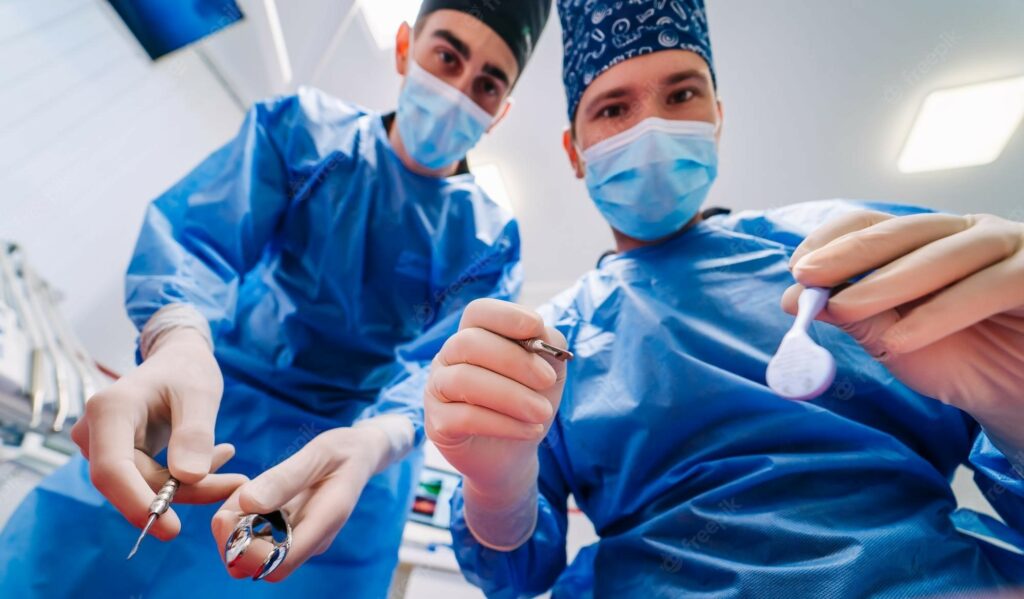
The Top 5 Reasons To Consult with an Orthopaedic Surgeon
You may be wondering what makes an orthopaedic surgeon different from any other doctor. After all, they’re medical professionals with similar training and education, right? Although both doctors likely went to the same medical school and completed the same courses, there is more to it than that. If you are wondering why you should be consulting with an orthopaedic surgeon rather than your primary care physician about your specific condition, keep reading for some useful information. An orthopaedic surgeon specializes in diseases and conditions of the musculoskeletal system, which includes bones, joints, ligaments, tendons, nerves, and muscles. Here are five reasons why consulting with an orthopaedic surgeon is a good idea if you have a musculoskeletal issue:
You’re More Likely To Get An Accurate Diagnosis
Many musculoskeletal conditions have similar symptoms, making it difficult to diagnose them. Your primary care physician may not have the training required to recognize more subtle signs and symptoms, which could delay your diagnosis by years. In addition, some conditions are more specific to certain specialists like orthopaedic surgeons. If you are experiencing knee pain, for example, your knee doctor will be able to examine your knee in a way that your general practitioner cannot, which will allow him or her to see things that your primary care physician cannot.
Orthopaedic Surgeons Are Trained in Advanced Techniques
Orthopaedic surgeons are trained in advanced techniques. They are experts in the treatment of orthopaedic problems like broken bones, arthritis, and sports injuries. They also specialize in treating diseases and conditions that affect the bones, joints, and muscles of the body.
They have advanced training in surgical procedures such as arthroscopic surgery and reconstructive procedures. They also use other advanced techniques to diagnose and treat problems such as X-rays and MRIs. They can also perform minimally invasive surgeries using techniques like robotic surgery to reduce complications. These surgeons work with other health professionals like physiotherapists to help patients recover from injuries or diseases. They also work with doctors who specialize in rehabilitation to help patients return to their normal activities faster.
Orthopaedic surgeons are trained to perform a wide range of advanced procedures, including joint replacements, reconstructions, and tendon repair. While many general practitioners are still able to do these things, the procedures will often be done more efficiently by an orthopaedic surgeon. For example, if your knee is causing you problems, you may need a total knee replacement. This is a complex surgery and requires specialized training. Your primary care physician, on the other hand, may have undergone no more than a few hours of training. That’s not to say they couldn’t perform the surgery, but the procedure may not be as efficient, and the results may not be as good.
Orthopaedic Surgeons Are Experts in Their Field
A practising orthopaedic surgeon is a highly trained health care professional who specializes in the field of orthopaedics. Orthopaedic surgeons diagnose, treat and manage injuries and disorders of the musculoskeletal system. They perform surgeries on the bones, joints, ligaments and tendons of the body.
Orthopaedic surgeons are experts in their field and they can treat a wide range of conditions, including fractures and injuries to the bones, joints, ligaments and tendons. This ranges from common injuries like sports injuries to more serious conditions such as osteoarthritis. Orthopaedic surgeons have advanced training in anatomy and physiology, as well as other medical fields such as radiology and anaesthetics. They also have special training in minimally invasive surgeries and joint replacement surgery.
Orthopaedic surgeons have their own sub-specialities. Some treat the foot, ankle, knee, or hip, while others focus on sports injuries. When you visit an orthopaedic surgeon, you’ll be seeing someone who is an expert in your particular type of injury. Not all primary care physicians have the same level of expertise in every field of medicine, which is why a sports injury would be better handled by a sports medicine doctor. An orthopaedic surgeon may also have access to the latest treatments or technologies that are designed specifically for your condition, which your primary care physician may not have.
Orthopaedic Surgeons Have Access to the Latest Technologies and Treatments
An orthopaedic surgeon specializes in the diagnosis and treatment of disorders and injuries in the musculoskeletal system, especially the bones, joints, muscles, tendons, and ligaments. Orthopaedic surgeons treat conditions such as fractures, developmental abnormalities, and congenital malformations; they also perform procedures such as arthroscopy, knee surgery, hip surgery, shoulder surgery, spine surgery, scoliosis treatment, and joint replacement.
Many orthopaedic surgeons now have full access to minimally invasive technology and are able to perform many types of surgeries in shorter timeframes than more traditional surgical procedures. They can also perform minimally invasive spinal surgeries with the use of robotic technology.
Orthopaedic surgeons have ready access to the latest technologies and treatments. For example, if you suffer a traumatic injury to your knee, your orthopaedic surgeon may be able to repair your knee without a total knee replacement. This is because new therapies and techniques are constantly being developed. Your orthopaedic surgeon may also have access to innovative surgical techniques that allow patients to recover more quickly and with less pain.
The Surgery May Be Performed by an Orthopaedic Surgeon
Surgeries are often performed by surgeons who are experts in that particular type of surgery. For example, if you need knee surgery, your orthopaedic surgeon may be able to perform the surgery himself or herself, rather than having an anesthesiologist or general surgeon assist them. This will allow you to be discharged from the hospital more quickly and with fewer complications. If you need to have surgery, choosing an orthopaedic surgeon may be the best option for you. An orthopaedic surgeon can treat a wide variety of conditions, including sports injuries and joint replacements. You’re more likely to get an accurate diagnosis from an orthopaedic surgeon, and they have access to the latest technologies and treatments.
Conclusion
Orthopaedic surgeons are medical doctors who specialise in treating conditions of the bones and joints, such as injuries, osteoarthritis, and sports injuries. They may also be known as orthopaedists, orthopedists, or joint surgeons. Orthopaedic surgeons are trained to diagnose and treat a wide range of conditions affecting the bones and joints. They may also perform surgical procedures such as hip replacement surgery or knee surgery. They can perform minimally invasive surgery using endoscopic devices. Orthopaedic surgeons often work in clinics or hospitals that provide other types of medical care, such as family health centres or emergency departments. In some cases, they may see patients at their offices or homes. Orthopaedic surgeons can use a number of different diagnostic tools to help them understand the condition of their patient’s bones and joints, such as X-rays, MRIs, CT scans, ultrasounds, and blood tests. They may also use imaging technology to help them visualize soft tissue structures around the bones and joints, such as tendons and ligaments. While some orthopaedic surgeries are minor procedures performed in an outpatient setting, others are complex surgical interventions that require hospitalization for recovery.
